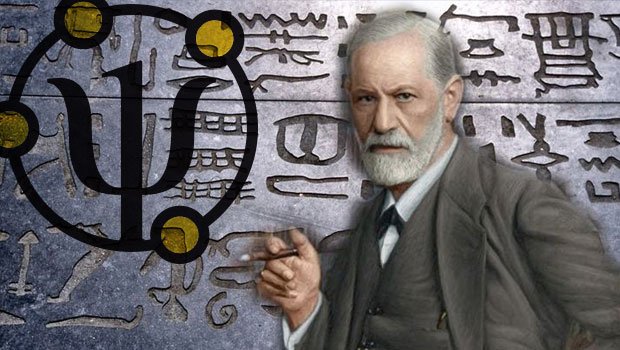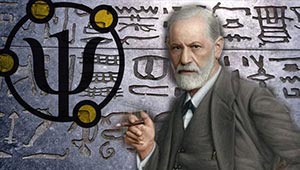Sommario
In the western countries more and more men and women find the sexual act a source of concern instead of pleasure: The exercise of an instinctual function has progressively become a serious and lacerating existential problem for a growing number of individuals.
The situation is absolutely worrying if we refer to the post-adolescent and juvenile population.
The use of “love pharmaceuticals”, which are always more widely spread even within young males, is an evident indication.
A primary vital function is being transformed, especially in the West, into a source of neurosis. Man, as if he were Dr. Strangelove, has begun to interfere with the delicate reproductive mechanisms. In the last 40 years, following the patent and the sale of the first contraceptive pill, patented by Pincus in 1960, women have introduced into their psychobiological structure a profound variant: the (temporary) abolition of their reproductive capability.
It is obvious that contraceptive methods have been used since the ancient times, but it is only the pill (as well as, obviously, radical surgical methods) which manages to determine a psycho-endocrine alteration of the female reproductive system.
In the United States, a contraceptive which determines only four menstruations a year, has even been approved!
It is opportune, for a propaedeutic reason, to reassume Freud’s opinions regarding the organisation of the sexuality.
Then, I will expose those which I consider to be the principal psychodynamic causes which determine the onset of impotence and frigidity.
First and foremost I would like to put into evidence a point of view, I would say, against the tide with regard to the contemporary psychoanalytic literature .
The idea comes from a sharp phrase of Freud that he places at the beginning of his Third Essay On The Theory Of Sexuality: “Only the exact convergence of the two urges directed towards the sexual object and the sexual aim, or in other terms, the affectionate drive and the sensual one, assures a normal sexual life“. 1
Freud specifies that in males, upon reaching the puberal maturation, the new sexual aim becomes the emission of sexual products. The previous aim, in other words, the attainment of pleasure, which has accompanied all the previous phases of the development of the libido organisation, is not to him unknown; on the contrary, the climax of pleasure is connected to this final act of the sexual process. Only that now “… the sexual instinct is subordinated to the reproductive function becoming, so to speak, altruistic”.2
These are affirmations to which I would like to call the attention of my colleagues as, far too often, the emphasis has been placed on the absolute autonomy of the sexual drive from the sentiment.
Regarding this, Freud, with the efficient metaphors which he often uses, clarifies: “It is like drilling through a tunnel from both ends” intending that the fusion of sentiment and sexual drive facilitate the act and strengthen it in synergy.
As my colleague Gioia Marzi has underlined many times during precious scientific discussions, “the fundamental problem of the human gender is the onset of the menstruation in place of the oestrus cycle“.
Doctor Marzi reminds us how the discovery of the uterine war and the description that Fanti, Peluffo and other micropsychoanalysts, as well as many other sources of information about foetal life 3, today allows us to anticipate, at this stage, a sort of Proto-Oedipus which each individual lives in the uterus as a direct participation towards the affective-representational life of the organism as host-mother-itself.
The foetus’s condition of particular vulnerability implies that the hard law of the Oedipus (also through the Images that the host organism preserves and transmits of it) constitutes a very important condition of imprinting, the same as other homeostatic variations of the mother can, the traumas and the illnesses (metabolic, immune or pre-eclampsia, etc.) 4
But, G. Marzi underlines again, our species also has the characteristic of availability for mating during pregnancy since the sexual desire is not strictly correlated to the fertile phases.
“With the loss of the oestrus cycle, in fact, when the females of our species mate, the complex of physiological variations during the mating is registered by the foetus: rhythmicity of the movements, increase of cardiac frequency, increase of arterial pressure and muscular hypertone of the uterus”. 5
On the other hand, I would like to underline the fact that human beings do not know if the sexual act , which takes place, is fecundating or not and this fact determines two fundamental consequences: the presence of a sexual activity free from the project of eternalising the genome, in other terms, a sexuality which has as its aim the pleasure deriving from the discharge of the libido congestion; and above all, an urge towards an eternalisation lacking in certainties, a factor that makes, especially in the Male, the drive for mastery of the object, dramatically powerful.
Sexual Dissatisfaction: the Common Psychodynamic Roots
A basilar concept from which we need to start is that impotence is a defence mechanism deployed against sexual activity which is perceived as dangerous. The part of the Ego, which exercises this inhibiting action of the function, is certainly unconscious: it is the part in which the castration anguish dominates in males, while in women, it is the penis envy and the desire of castration of the male phallus. In the male, the danger fantastically feared is castration: the vagina is lived as a weapon which can damage the integrity of the phallus (vagina dentata).
We must remember that the nuclear complex of the infantile sexuality is the Oedipus complex: defined by myself as the “royal catalyst” of the vital processes of organisation 6 : Oedipus is our saving drama, a container of lacerating pains and exalting joys, excitements from empyrean and ancestral terrors, it is the catalyst of the vital attempts of the psychism. It is the Archimedes’s lever of the life drive, which surges from the stasis of death and subjects human beings to the vital project of the eternalisation of the genome. However, Oedipus is an incestuous attachment: in a way that no other sexual attachment will ever be so desirable as that of the mother (or the father), in a more profound level, every sexual attachment must be prohibited. Because every subject represents the mother (or the father).
Therefore, the primary root of every form of sexual impotence or anorgasmic is the incestuous fixation. We will understand, thus, how the stigmas of resemblance of the actual object (partner) with the primary one, play a fundamental role.
• Male Impotence
Many men are impotent with a woman or with a particular type of woman and not with others: often such subjects manage to isolate the sexuality from the sentiment and they are paradoxically impotent only with the women they love (the mother). These are the cases in which some men, in order to have an erection, are compelled to introduce the ritual of payment for the sexual performance (often disguised as a game): “This woman is a professional prostitute, therefore, there is no possibility that she can be my mother!“.
A particular form of impotence is that known as ejaculatio praecox. There are several grades of seriousness of the problem: from a very brie
Nel 2024 riceve il Premio Accademico d’Onore della Accademia Culturale Internazionale Cartagine 2.0.
Nel 2024 docente ad Almaty – Kazakhstan presso il workshop di psicoanalisi sul tema della violenza, promosso dall’Università di psicoanalisi di Mosca in collaborazione con l’Istituto svizzero di micropsicoanalisi.
Doctor Quirino Zangrilli was born in Fiuggi in 1955. Graduated with honours in Medicine and Surgery in 1980, he practices Psychoanalysis, with intensive method, since 1982. He is author of 72 scientific pubblications. He has attended as speaker or president of session to many national and international scientific Conventions. His book “La vita:involucro vuoto” (Life: empty involucre), published by Borla in 1993, has been in use by the Chair of Dynamic Psychology at Turin’s University since 1994. He is the author and founder of the multimedia review “Psicoanalisi e Scienza” (Psychoanalysis and Science), the most read Italian on line review of psychoanalysis. In 2012 he participated as a Speaker at the Scientific Festival of BergamoScienza. In 2013 he illustrated his research on the maternal-fetal interaction in the Special Session of the XI World Congress of Perinatal Medicine in Moscow with his relation “Intrauterine Imprinting”. He is visiting teacher at Moscow Institute of psychoanalysis and training psychoanalist of Swiss Institute of Micropsychoanalysis.
In 2024 he is a teacher in Almaty – Kazakhstan at the psychoanalysis workshop on the topic of violence, promoted by the Moscow University of Psychoanalysis in collaboration with the Swiss Institute of Micropsychoanalysis.
In 2024 he received the Honorary Academic Award of the Carthage 2.0 International Cultural Academy
Le Le Docteur Quirino Zangrilli est né à Fiuggi en 1955. Diplômé avec mention en Médecine et Chirurgie en 1980, il pratique la psychanalyse depuis 1982, en utilisant une technique intensive. Il est l’auteur de 72 livres et publications scientifiques. Il a participé en tant que conférencier ou président de session à de nombreuses conférences scientifiques nationales et internationales. Son livre “La vie : enveloppe vide”, publié par Borla en 1993, est adopté depuis 1994 par la Chaire de Psychologie Dynamique de l’Université de Turin. En 1994, il a reçu le “Prix national Ciociaria de médecine”. Il a conçu et fondé le magazine multimédia “Psicoanalisi e Scienza”, qui est le magazine de psychanalyse en ligne en italien le plus suivi au monde. (Source : Entireweb, Alexa, Google, Virgilio, Arianna., etc.). En 2012, il a participé en tant que conférencier à la colloque scientifique de BergamoScienza. En 2013, il a exposé ses études sur l’interaction materno-fœtale lors de la session spéciale du XIe Congrès mondial de médecine périnatale à Moscou avec le rapport “Intrauterine Imprinting”. Il est chargé d’enseignement au cours de spécialisation de trois ans en psychanalyse, psychothérapie psychanalytique et consultation psychanalytique à l’Université de Moscou. Il est membre didacticien de l’Institut Suisse de Micropsychanalyse et de la Commission pour la Pratique de celui-ci.
En 2024, il enseigne à Almaty – Kazakhstan à l’atelier de psychanalyse sur le thème de la violence, promu par l’Université de Psychanalyse de Moscou en collaboration avec l’Institut Suisse de Micropsychanalyse.
En 2024, il reçoit le Prix Académique Honoraire de l’Académie Culturelle Internationale Carthage 2.0.
В 2024 году является преподавателем в Алматы – Казахстан на семинаре по психоанализу на тему насилия, проводимом Московским университетом психоанализа в сотрудничестве со Швейцарским институтом микропсихоанализа.
В 2024 был награжден Почетной академической премией Академии Международной Культуры «Карфаген 2.0».











